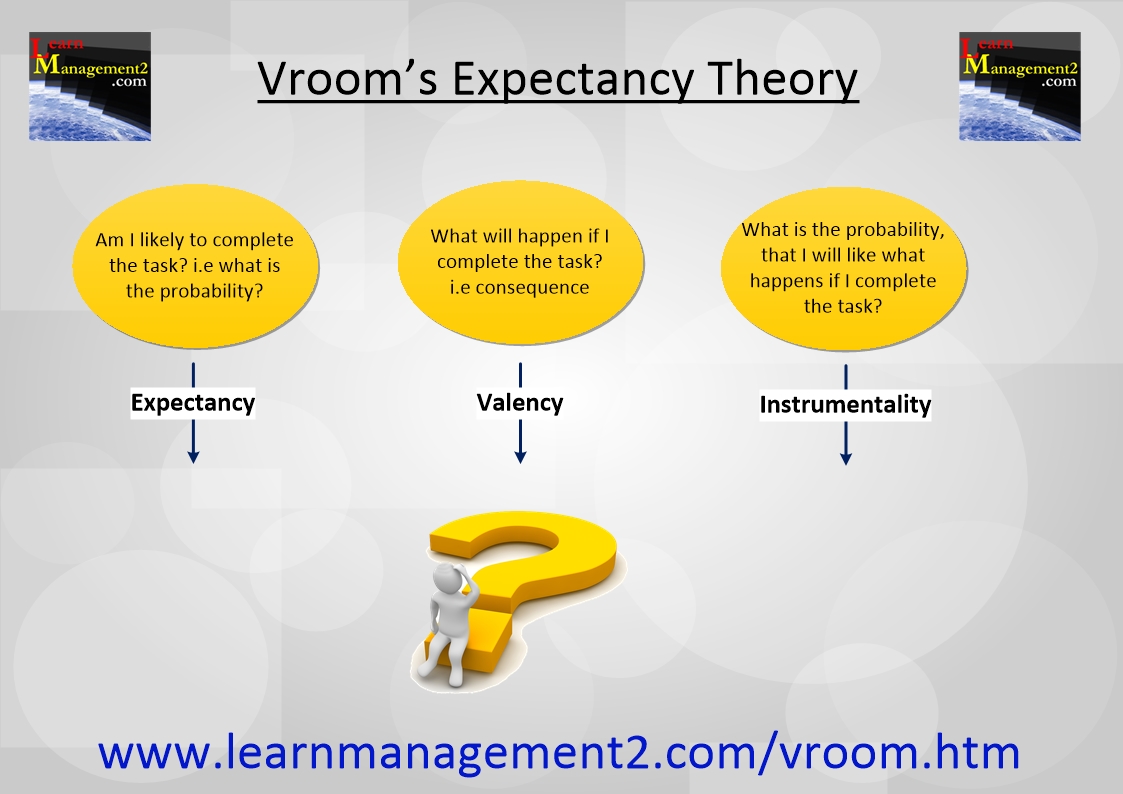Vroom's Expectancy Theory
Introduction
Victor Vroom's Expectancy Theory states that when an employee is completing a task they are influenced by their view on:
- The probability of completing the task and
- The possible outcome or consequence of completing the task.
Expectancy Theory states that individuals choose actions that they think will give them a reward or reduce the likelihood of pain. Under this theory the ultimate goal is not important to the individual; what matters to the individual is the impact that achieving the goal will have on them.
The Diagram below illustrates the 3 components of Vroom's Expectancy Theory; Expectancy, Valency and Instrumentality
Factor's Influencing an Employee's Opinion
Under Vroom's Expectancy Theory an individual's opinion is influenced by the following factors:
- Expectancy: Does the individual believe that they can achieve the task?
- Valence: Does the individual believe that completing the task
will benefit them or cause detriment?
- Instrumentality: What is the probability of completing the
task leading to an outcome desired by the individual?
Expectancy (Subjective Probability)
Expectancy is the individual’s belief about whether they can achieve the task. This view will be influenced by a number of things including:
- The type of skills needed for the task,
- Support expectations of co-workers and line managers,
- Type of equipment/materials and
- Availability of pertinent information.
Previous Experience
Another factor influencing expectancy is previous experience. If the task has been successfully completed in the past then expectancy will be high but if the task has failed in the past or was difficult to perform then expectancy will be low.
There is a positive correlation between efforts and performance.
- Favourable performance will result in a desirable reward.
- The reward will satisfy an important need
- The desire to satisfy the need is strong enough to make the effort worthwhile
If an individual feels that they can achieve the task then expectancy is measured as 1. On the other hand if they feel that the task can not
be completed then expectancy is measured a 0. If the individual feels that the task may be achievable then it will be categorised between
0 and 1. For example a task measured as 0.75 is believed to be more achievable than one measured as 0.45.
Valency (Personal Benefit/Personal Detriment)
Valency measures how much an individual wants the consequences of completing the task. If task completion, leads to an outcome desired by the individual, than valence is positive. Examples of positive valence are praise, promotion, recognition and pay rises.
On the other hand if the individual believes that completing the task will lead to something they don't want then valence for the task is negative. Examples of negative valence are tiredness, wet clothes, redundancies and boredom.
Next Page
